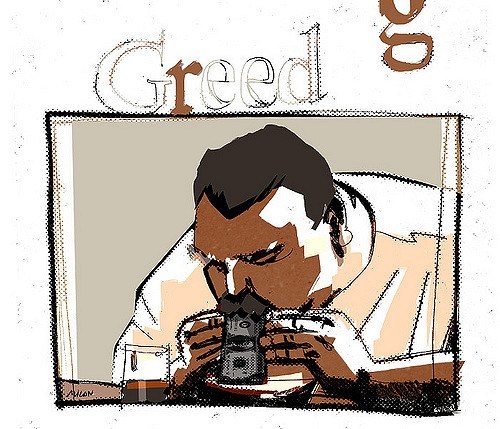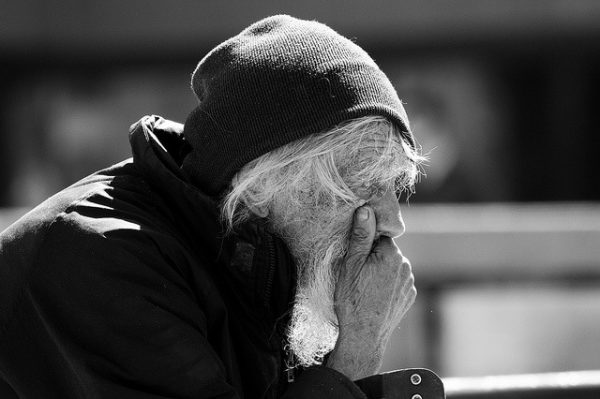Have you seen or read French sayings? Ever wonder where they come from, those familiar sayings that roll off your tongue without a second thought?

Here are six popular French sayings about life that carry the wisdom, history, and culture of France.
1 . Apres la pluie le beau temps
What a poetic way to say better days are ahead and disappointment will turn to hope! The sentence translates literally to, “After the rain, nice weather.”
In English, it’s “Every cloud has a silver lining” because--like life itself--weather is so changeable.

www.talkinfrench/silverlining (flckr)
Two facts about its origin:
- From a 13th century Latin proverb, Post nubile Phoebus, the early Roman poet Virgil wrote fortune is as fickle as the weather---because sometimes misfortune makes you happier or stronger in the end.
- The saying later appears in the 17th Century when poet Jean de La Fontaine writes: “Sur les ailes du Temps la tristesse s’envole; Le Temps ramène les plaisirs,” or sad times give way to pleasurable ones.

www.talkinfrench/smokeandfire (flckr)
2 . Il n’y a pas de fumée sans feu
There’s no smoke without fire---you can’t deny that! More commonly phrased as, “Where there’s smoke, there’s fire,” this proverb captures nature’s obvious law that fire causes smoke--even if you can’t see the fire. So when your friend blushes at the mention of a certain someone’s name, and then coyly asks, “Why do you think I’m interested in him?”, you might repeat this saying.
And speaking of spreading rumors about lovers, the current saying came from the ancient Roman saying, “Rumor publicus no omnino,” which means rumors may not be entirely unfounded.
Still Stuck at Intermediate French?

Break through the plateau with our proven coaching and study method.

www.talkinfrench/eat (flckr)
3. Il faut manger pour vivre et non vivre pour manger
Food and drink---dear to the heart of French culture---are often the source of sayings offering advice for a healthy life. Here, the French typically say, “We must eat to live and not live to eat,” meaning, don’t give into excess.
This adage goes way back:
- Though Socrates first said it in 5th century BC Greece, this wisdom comes from the Latin phrase “Ede ut vivas, do ut vivas Edas,” which translates closely to the French saying.
- Molière, however, centuries later in 1668, popularized it in his comedy, The Miser (l’avare). In one scene, Harpagon, the miser, is throwing a dinner party and asks his cook for the menu. Wanting to spare expenses but not seem cheap, Harpagon’s son claims a healthier (less meaty) menu is better for their guests. After all, he says, you have to eat purely to live, not live to eat.

www.talkinfrench/greed (flckr)
4. L’appétit vient en mangeant
More eating advice, this common proverb, L’appétit vient en mangeant, means appetite comes with eating. Put another way, “Plus on a, plus on veut avoir,” the more you have the more you want. Though centered on food, it applies to any obsession, whether candy, shoes, vacations, or even books!
Back in the 16th century, the rich---with their insatiable appetites for food, drink, and material things---were criticized with this aphorism for their greedy behavior. But note three other interesting facts about this expression:
- The expression became popular in the 16th century after French writer, Rabelais, used it in his book, Gargantua. He wrote, "L’appétit vient en mangeant, la soif s’en va en buvant,” loosely translated as appetite comes with eating, thirst goes away with drinking.
- However, French dictionaries later credit the saying to an overly ambitious translator of Italian poetry, Jacques Amyot (1513-1593), from a letter to the king. Amyot notoriously petitioned to be bishop of Auxerre, a rather huge leap from his humble post as a translator. But Rabelais wrote it before Amyot’s letter!
- And even before the French was the ancient Latin saying, “Mendicorum loculi inanes semper,” meaning “The beggar’s wallet is never full.” Roman poet Ovid uses the expression in his Metamorphoses to describe the mythological Erisichton, who sold his own daughter into slavery for food and even ate his own flesh! He writes, “Cibus omnis in Mo Causa is cibi,” meaning, the more he eats, the more he wants food.

www.talkinfrench/makeyourbed (flckr)
5. Comme on fait son lit, on se couche
As popular in English as in French, this adage translates to, “As you make your bed, you must lie,” or, as my mother would shout, “You made your bed, now lie in it!” Like its biblical cousin, “You reap what you sow,” these words warn that you suffer the consequences of your actions.
Though the origins of this phrase are unclear, one resource, expressio.fr, suggests it’s a combination of the letter---as in the letter of the law or taking something at face value---and making a bed. If you make a bed poorly, say, with tangled sheets that may strangle you in your sleep, you’ll have a bad night’s sleep. Or in the case of a flower bed, scrawny seedlings.
On the positive side, the opposite is also true—make a good bed and sleep soundly!

wwwtalkinfrench/poverty (flckr)
6. Pauvreté n’est pas vice
Finally, Pauvreté n’est pas vice or On ne peut pas reprocher à quelqu’un sa pauvreté comme un vice, means you can’t blame someone for being poor---because poverty isn’t a vice!
Unfortunately, throughout history and even today, the poor have suffered more than poverty. But the poor have had their famous defenders who made this saying popular by their words or deeds:
- Voltaire, in his 17th-century play, the Prodigal Son, compares poverty to “disease” that disfigures, only worse. The disfigurement, he criticizes, comes from those who blame the poor as somehow responsible for their condition.
- However, centuries before, Alexander the Great, was not ashamed to counsel poverty-stricken Diogenes. He even chose Abdalonymus, who fell from royalty into poverty, to succeed the throne of Sidon in 333 BC after the battle of Issus. Alexander thought no less of the poor for being poor.
So why do we still use these tired, old famous French sayings without a second thought--like instinct? Because they are old---familiar truths that withstood the test of time. They remind us of who we are, good and bad. Nature--human and out there--doesn’t change much throughout the centuries, even if the stories, styles, and names do.
Let us know which of these French sayings you like most and if you have any famous French sayings that we can add to the list.
Still Stuck at Intermediate French?

Break through the plateau with our proven coaching and study method.

Enjoyed this article.
Is there a dictionary for old French words or old French phrases from 1840s or before? Where could I buy one? I am writing a book set pre-Franco-Prusdian War period through war and after.
Help if you can.
I am not sure but you can find some scanned versions of very old book on gale.com or guttenberg.com
Plus Ça change … a gem of an expression as it encapsulates so much wisdom in three short words!
Loved the origin of so many sayings! Thanks Fred! Always so helpful
Catherine